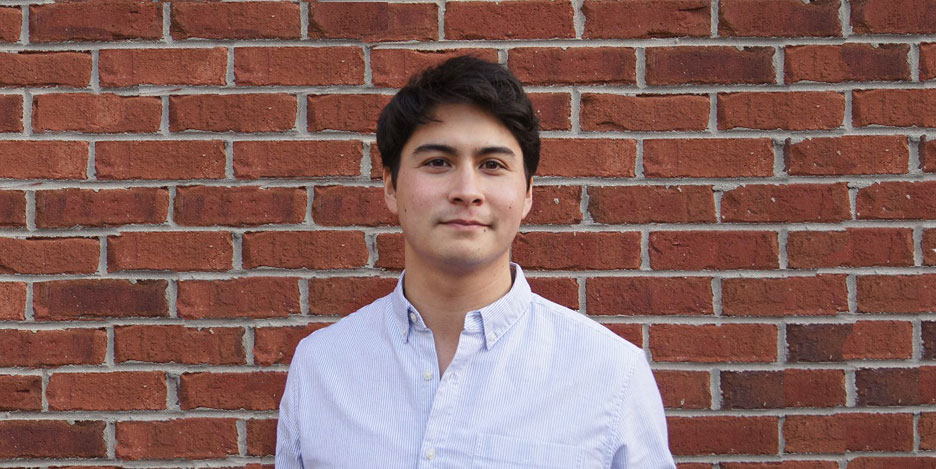Dominic Go is passionate about many things, a true polymath. He founded Timbredio because it is the combination of three of his chief interests: music, technology and systemic cultural change. He hopes most of all that his contribution to this world will leave it a little better than it was before he got here.
1. You are the founder of Timbredio. What can you tell us about it?
Timbredio is a new streaming music service built to foster discovery and enhance connection (to one another and to a deeper part of ourselves) while directly supporting the artistic community.
The current music industry is built on archaic systems that were determined by constraints that no longer exist, things like the physical production of records and the costs of distribution and marketing. These constraints have disappeared with the digital age, but the systems have not and we’re all worse off because of it.
Timbredio solves this by throwing the old model out of the window. Since we believe the central purpose of music is to connect, we have built our platform to reflect that goal. We’ve removed the middlemen who attempt to predetermine the “best” music and let people decide for themselves. We use our listeners’ behaviors, preferences, and network to enhance their experience rather than the one-size-fits-all, mass-market musician.
You can think of it as farm-to-table music.
2. You say “connection” is the central purpose of music and therefore, you’ve made it the driving tenet of your platform. What do you mean by this? And what does it mean in a practical sense?
Have you ever thought about why music exists at all? It exists in every facet of our lives and in every culture; weddings, parties, working out, religion, funerals and the list goes on. I believe the reason is that it reaches us and binds us in a way that words alone cannot. In short, I think it’s about connection.
By its very nature, Timbredio is already breaking down barriers and creating a more user-to-user experience by allowing listeners to find independent artists they never would have otherwise discovered.
Increasingly, music has become an isolated experience. We all listen privately on our headphones as we walk down the street and that’s okay. But I think there are practical ways to incorporate social connection with music. So as we build out more features to the platform, we keep that aspect of community in mind. Here are just a few of the ways we do this and will do this in the future:
- Using listener taste intersections to help recommend music that will really connect with them following Seth Godin’s principle “people like us do things like this”.
- Direct messaging between listeners and artists, breaking down the artificial fourth wall.*
- “Music spaces” will allow our users to create shared spaces where they can listen and chat together virtually.*
Feature not yet available but coming soon!*
3. Timbredio also seeks to solve the “starving artist problem” which at this point is essentially taken as a given. What makes Timbredio’s approach different from the conventional approach? Why do you think it will succeed where so many others have failed?
Music is not meant for a capitalist society. It is much better suited for a gift economy. However, that is not the system in which we are living. Consequently, the valuation of music has been out of whack as multitudes of middlemen have tried for years to turn this gift into a commodity. Of course, they charge a hefty fee for this miracle work. In the end, the biggest casualty of these efforts to fit a square peg into a round hole have been the creators themselves, the starving artists.
At Timbredio, we eliminate the middlemen. We throw out traditional royalties. We change the rules.
Here’s how we do it:
- Timbredio ‘pays per like’ (patent pending): Rather than create a system that incentivizes people to scam their way into getting played (no matter the quality of music; e.g. payola), we set up a system that rewards musicians for creating music that connects. Each quarter, we dedicate a substantial revenue share to artist payments, and we distribute that money according to the percentage of ‘likes’ their music received during that time period. Not only that, the more your music connects, the more likely that we’ll be able to find more people that will love it.
- From fans into backers: Musicians can also leverage their existing following to bring in backers on Timbredio. For every fan brought in, an artist receives $1 of that backer’s subscription every month, for the lifetime of that backing, allowing artists to create substantial, predictable income.
Let’s compare this with an existing platform like Spotify. The Verve reports that Spotify will pay approximately $0.008 per play to the rights holder of that song and only 20% of that makes it back to the musician. Here’s how it works out:
| Ellie, a jazz musician, is trying to make it and puts her music on both Spotify and Timbredio. | ||||
| Plays | Likes | Backers | Estimated Pay | |
| Spotify | 5,000 | 700 | 0 | $8 |
| Timbredio | 5,000 | 700 | 75 | $110* |
*Based on an estimated $0.05 per like, but this number is not predetermined.
Isn’t the value difference between trying to produce something mass market and finding your true fans, those with whom you really connect, astounding?
The most incredible part of this whole thing is that neither Pandora or Spotify are profitable because they still have extremely high licensing costs with all of the major players of the music industry. This cost is nearly 70% of their annual revenues.
By cutting out the middlemen, Timbredio is able to pay our musicians considerably more and at a far lower cost to our company. It’s a true win, win.
4. What are some of the biggest obstacles that you’ve faced in building this platform? What obstacles do you think lie ahead?
The biggest obstacle by far has been fear. There is an incredible vulnerability that comes with building something like this, but then, I consider all of the artists out there who also put themselves out there to no avail due to a faulty system. This was something I had to conquer, and it’s still something I deal with every day. The amount of self-doubt I am feeling as I type these words is unreal. I hope people read this. I hope people get it.
I think one of the biggest challenges we face ahead will be helping people understand what they’ve been missing. When you’ve lived in a broken system your whole life and you’re accustomed to the constant repetition of the same music, it’s hard to feel the pain. It’s not hurting you directly, but opportunity loss is real. How much more fulfilling and enriched would your life be if it were easier to find and surround yourself with music that really means something to you? I can’t put a figure on it. I truly believe that once people experience something better, they won’t want to go back.
5. What long term impact do you hope to see from your work at Timbredio?
Well, first things first. We need to get out of beta. We are celebrating our official launch with the Timbredio Launch Concert on September 22, 2018 at The Elbo Room in Chicago, IL. If you’re interested in joining us, purchase tickets here. We hope you can come out to the party!
As for the truly long term…
There are these moments we’ve all had when we hear a song for the first time, and it knocks us off our feet. We don’t know why, but it really catches us at just the right moment. We’ve discovered something truly unique. These days, those experiences are few and far between, but I imagine a world where they don’t have to be.
Art enriches our lives in ways that we can’t fully express. That’s why it exists. That’s why it lasts.
At Timbredio, we’re taking music back. The true long term goal is to turn this commodity back into what it was meant to be, a gift to our society. We hope you’ll join us
Bold



